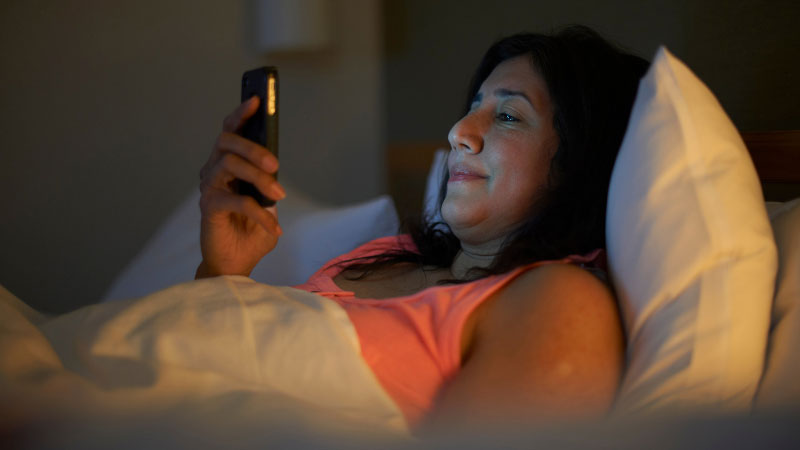
If you’re having trouble getting to sleep, or staying asleep through the night, you may be tempted to ask your doctor to prescribe sleeping medication. But prescriptions such as Ambien or Lunesta have been shown to have side effects, some serious. Over time, they may even make the problem worse.
A new patient of mine who suffered from insomnia got upset when I wouldn’t prescribe the sleeping medication she’d been taking for years. I explained it was hurting more than helping at this point, and that I wanted to slowly take her off of it.
She resisted. She was used to relying on that sleeping pill and in her mind, she needed it, even though she was no longer sleeping well.
I talked with her about practicing good sleep hygiene, nightly habits that help set a pattern for falling and staying asleep. Though still angry about not getting the prescription, she did start following my suggestions.
The next time I saw her, she reported that she was sleeping well. Her prescription had been replaced by a cup of herbal tea before bedtime.
One of the most common sleep disorders is insomnia, the inability to fall asleep or stay asleep throughout the night.
Insomnia has many causes. One older patient I had was having trouble sleeping at night because she was napping several hours during the day. This is a classic case of her circadian rhythm being out of whack.
Your circadian rhythm is the internal 24-hour sleep-wake cycle set by your brain. Some people tend to be more alert in the evenings, others in the mornings, but generally, adults need 7 to 9 hours of sleep in a 24-hour period. My patient had shifted her cycle to sleeping when everyone else in the household was awake, probably by initially giving in to an urge to nap after a bad night’s sleep.
I suggested she start exercising every day and that she get some morning sunlight. Studies show that even just 10 minutes a day of aerobic exercise helps promote good sleep. Natural light tells your body that it’s time to be awake because our circadian rhythm is affected by the cycle of light and dark.
I also asked her to not watch television in bed, which can inhibit the production of melatonin, a hormone your body produces when it gets dark that makes you sleepy.
In addition, practicing good sleep hygiene can improve your sleep health. These habits can help you get to sleep and stay asleep at night without medication:
• Go to bed and wake up at the same time every day.
• Make your bedroom a sleep sanctuary. Don’t work or watch television there, and remove the computer.
• Keep the temperature in your bedroom on the cool side.
• Two to three hours before bed time, turn off your TV, computer and phone to avoid the blue light those electronics emit.
• Develop a pre-bedtime routine. This helps you relax and signals your brain that you are ready to go to sleep.
Insomnia is a common problem, especially as you get older. Before asking your doctor for medication, try developing good sleep hygiene. It can make all the difference.





